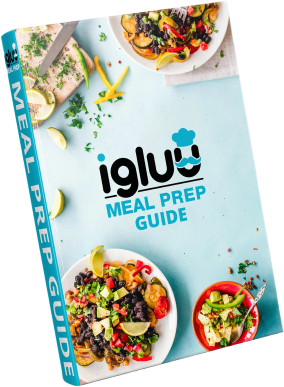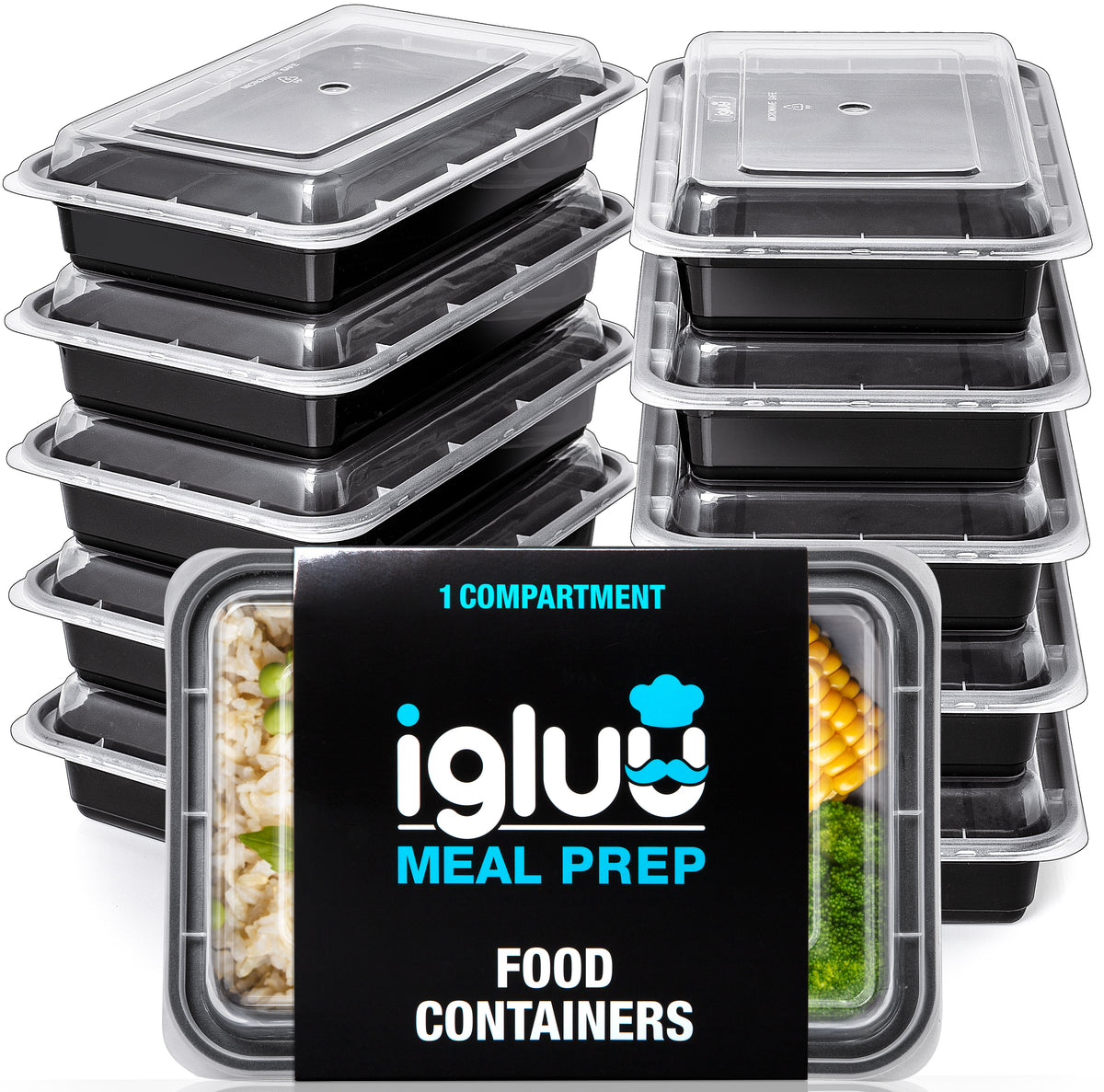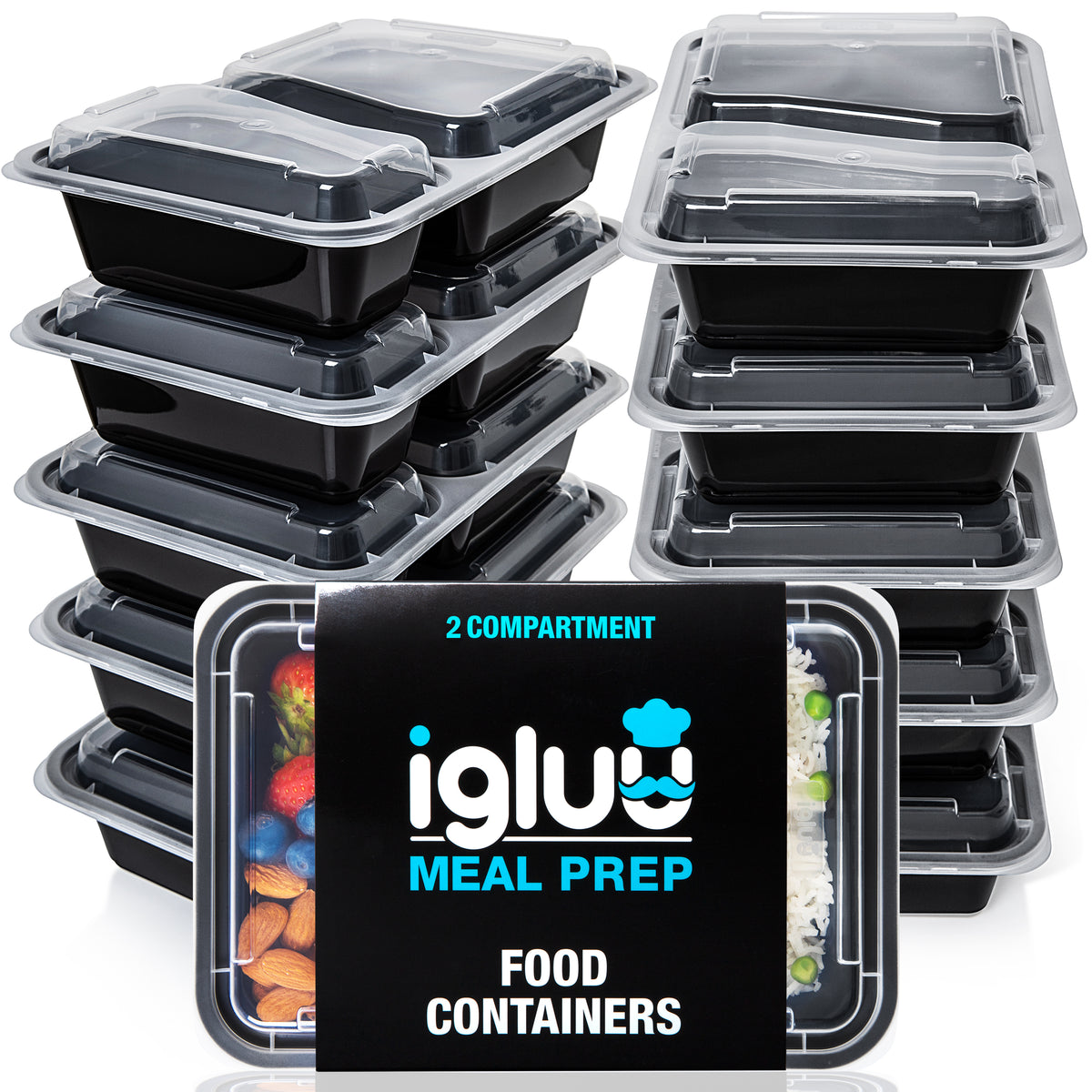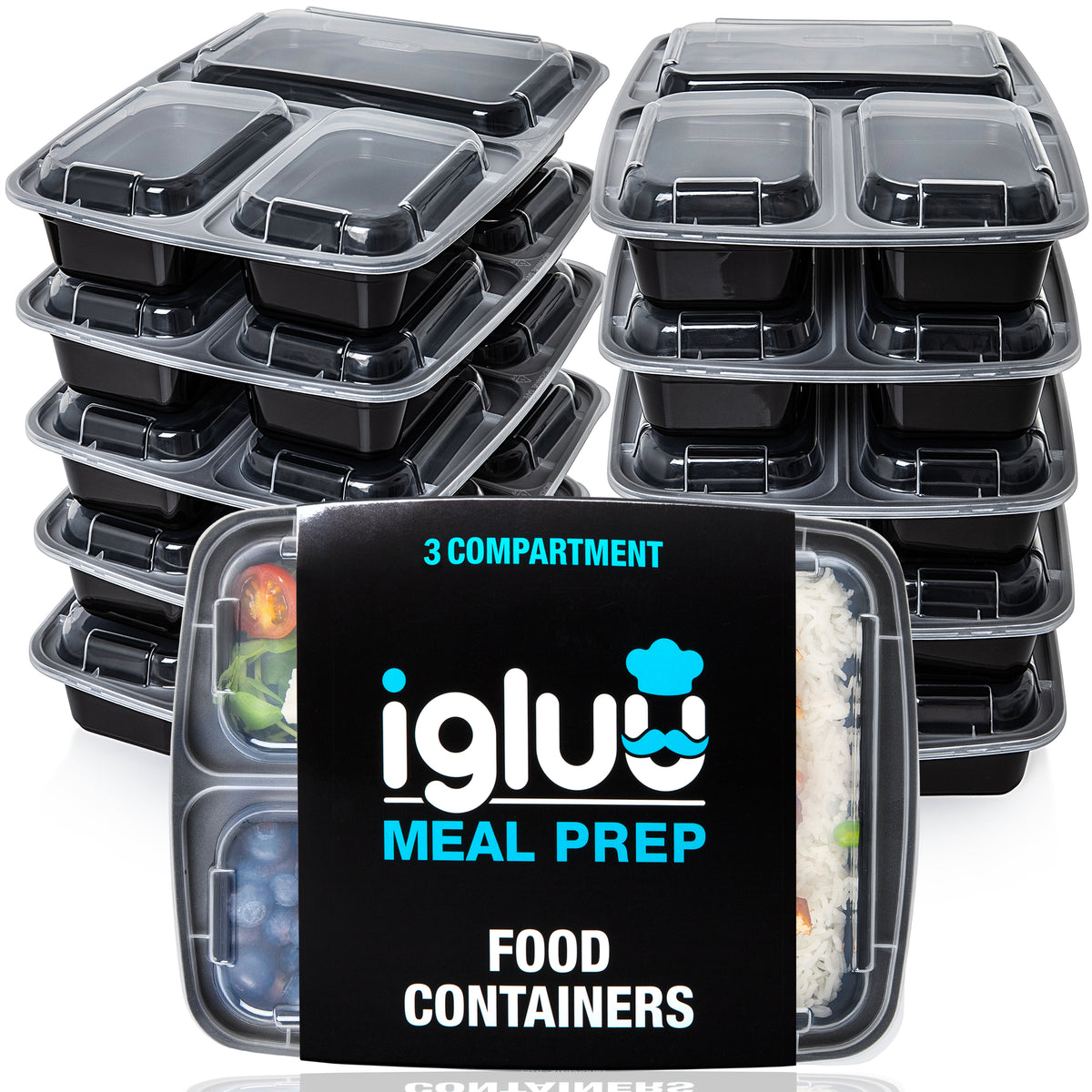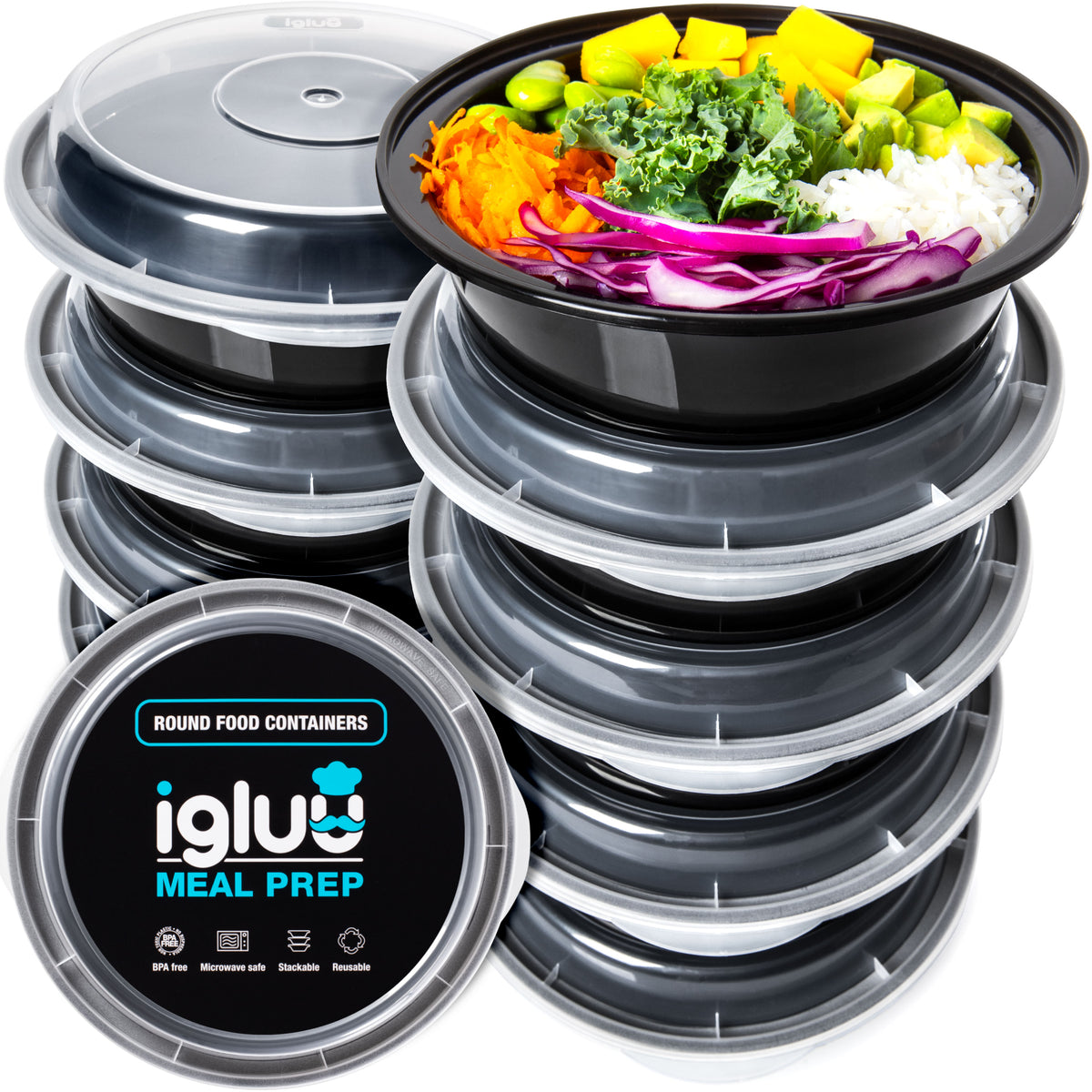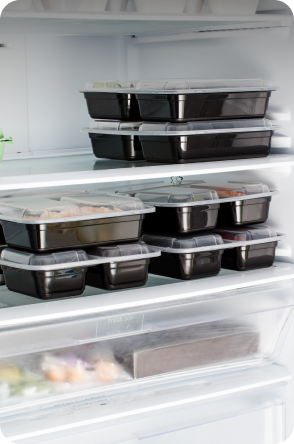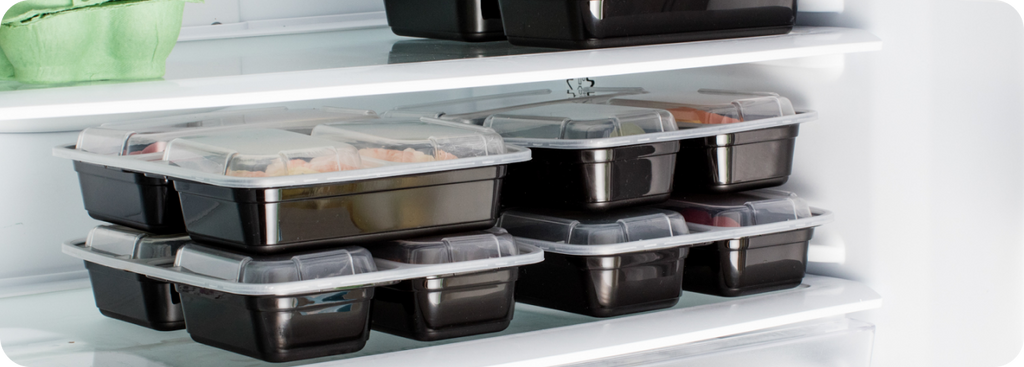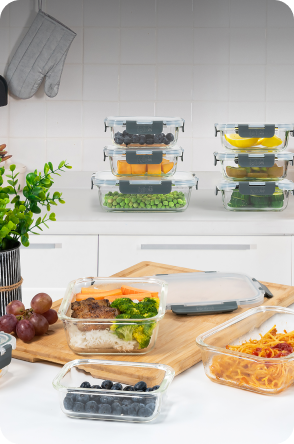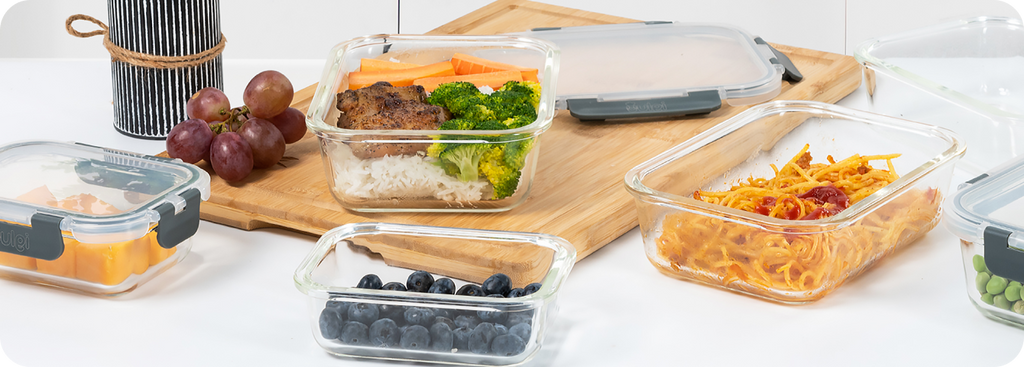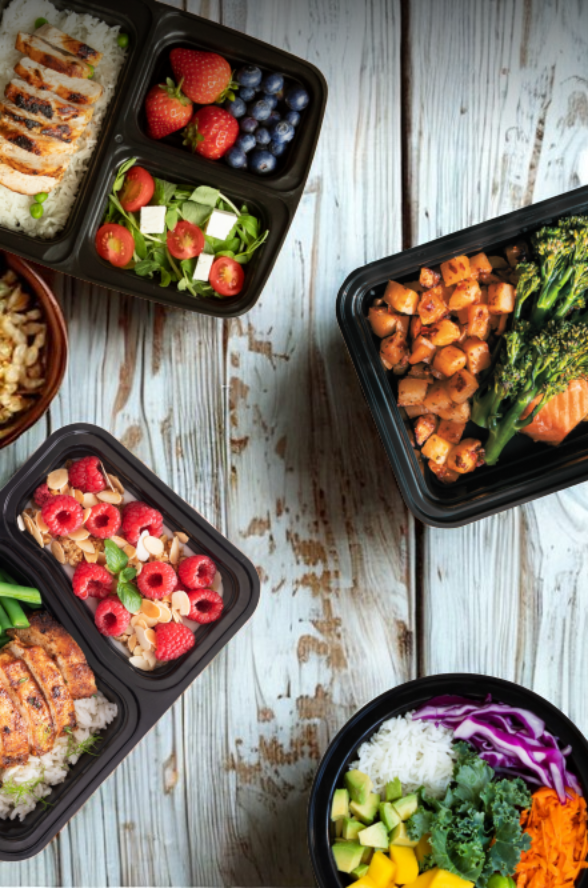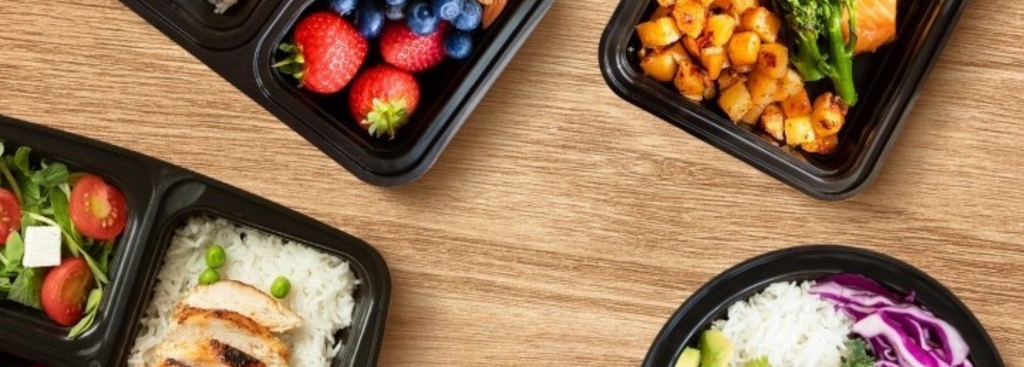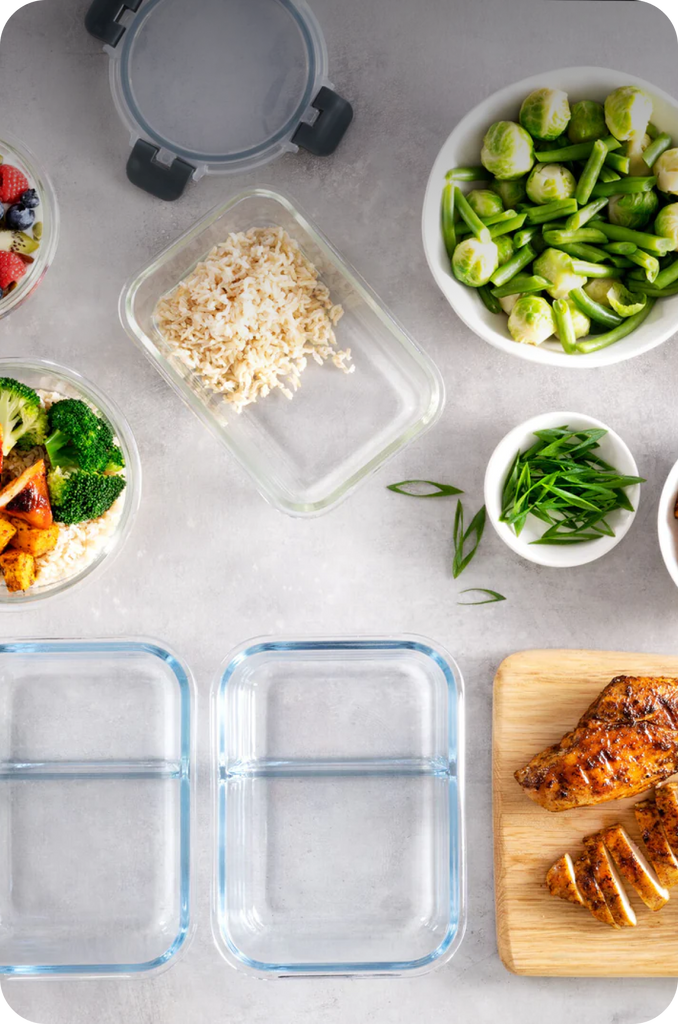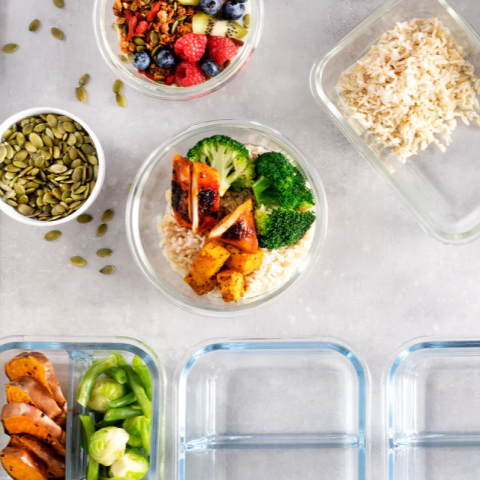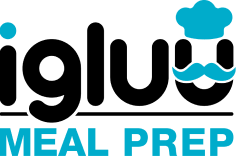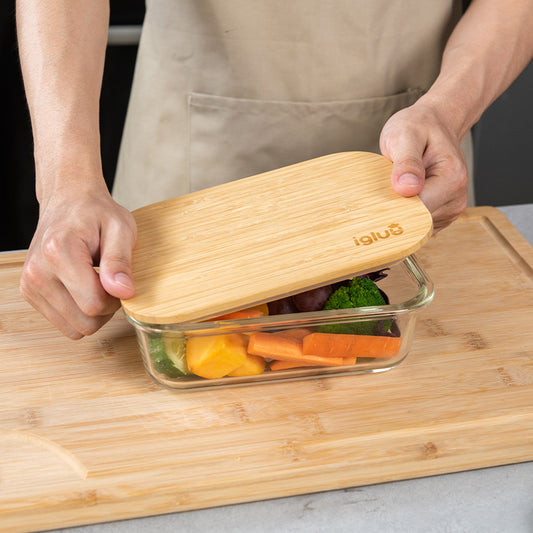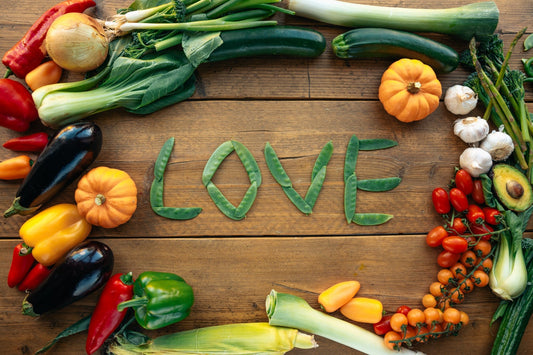No matter what your split is, there's no denying that intermittent fasting gets results. It's the lifestyle that's sweeped the fitness community over the past couple of years, with blogs, vlogs and Instagram posts springing up from all your favourite influencers who advocate giving your digestive system a break for a set amount of time each day.
Fasting is nothing new, but the great thing about intermittent fasting is that it's not too difficult or challenging, mentally or physically. The outcome? Your body has time to do more than just break down food while using that stored fat to fuel your day, and it can also help you stay on track with your fitness goals.
How you intermittent fast is completely down to you and your lifestyle requirements. Some people break their fast early and stop eating early, while some might block out the middle of the day to get in those macros and others wait it out until the afternoon and get their calories in towards the end of the day.

Meal prep and IF
You can read all about exactly what intermittent fasting is here on our blog, but one of your biggest questions might be: how do I get organised to make intermittent fasting work for me so I can see results? The answer? Meal prep!
Because IF isn't about what you eat, but when you eat, you don't need to worry too much about the kinds of foods or meals you need to cook and prepare like you would on a calorie restrictive diet. That can be really useful for anyone who is just getting started with meal prep, because it's often the finer details like calorie amounts and food types that people struggle to translate into a prepped meal or meals for the week.
That being said, it's worth noting that just because IF is all about getting your meals and snacks in within a certain time, doesn't mean that all those meals and snacks should be laden with sugar and carbs! Nutritious, healthy meals are still vital to sustaining an active and healthy lifestyle.
So instead, focus on using meal prep as a tool to get you organised so IF can be really simple and effective. After all, you're more likely to stick to healthy habits if they easily slot into your day. Being prepared is especially important if you're fasting for a longer amount of time like 16 hours - you don't want to be getting to your magic feeding window, only to realise that you need to cook. That's where meal prep can really help.
Getting started
What comes first, IF or meal prep? The answer is IF! That's to say, IF and your fasting/eating split should help you set out and plan the week so you can work meal prepped meals into your feeding window.
A popular IF split is 14:10. This gives you 10 hours in a day when you should eat, with a 14 hour fast. It doesn't matter when this is, so if this is a split that works for you, you can then tailor it around your lifestyle. It's an easy way to give your body a break from digesting foods and gives it chance to burn off any stored fat - mostly while you sleep.
For some, it might mean breaking your fast with some green tea or coffee at 9am and having a breakfast, then starting your fast up again at 7pm. It's important to note that a 'fast' means all you're putting into your body is water. Anything that activates your digestive system is a no go!
Once you've decided your split, you can work out how many meals and snacks you need.

Meal planning and prepping
From there, you can plan your meals so you can grab and go as soon as your feeding window kicks in! The usual rules apply, so think about your macros but don't feel the need to focus too much on calories and portions.
Instead, plan healthy, balanced meals that focus on protein, carbs and good fats (take a look at our blog all about macros) that will help you reach your goals easily. Take a look at our recipe inspirations for some ideas!
Once you have some meals in mind and a shopping list, grab your ingredients from the supermarket and set aside an hour to get cooking. Meal prepping like this helps save time and money, as well as helping you control your portions and make life simpler. IF can take a bit of adjusting if you're used to eating from 6am through to 10pm most days, but by prepping your meals you can help things run a little smoother.
Not only will you have a stash of meals in the fridge or freezer ready to go and enjoy during your feeding window, but you'll always have the right amount of food for you so you're not trying to scrabble around for food with the clock ticking.
You'll probably end up eating less calories throughout the day, simply because you're not eating as much. Having an eating deadline in mind will also stop you from overeating on an evening while simultaneously enabling you to just live and enjoy life! If you have plans to eat out at a restaurant one evening, IF doesn't restrict that. It just means you can adjust your feeding window without feeling like you're falling off track like a lot of diets will have you believe.

Here's a simple 14:10 schedule to help you use meal prep for intermittent fasting:
9am
Start your feeding window with a mug of green tea or black coffee to kick start your metabolism. Only drink water before this, otherwise you'll break your fast!
Now's the time to grab breakfast. We recommend overnight oats, which can be prepped the night before, or even days before! So as soon as the clock strikes 9, you can pop it in the microwave and you're good to go.
Take a look at some of our favourite recipes here.
11am
Remember to stay hydrated throughout the morning to keep yourself alert and satiated. Grab a handful of almonds or a banana for a hit of good fats and carbs, plus a little protein too.
1pm
Lunch time! Prep a delicious, balanced lunch ahead of time so you can grab it from the fridge and eat it at your desk, on the sofa or out and about. We love this peanut chicken recipe from Sammy's Kitchen which is packed full of protein. Swap chicken for a meat-free alternative for a tasty vegetarian dish.
Cook it up with some broccoli and serve with brown rice - both which can be prepped ahead and popped in the microwave in an Igluu container. If you're not a fan of re-heating rice, take a microwave pouch which can be thrown in your bag and cooked up when you need it.
3pm
If you struggle with afternoon hunger, we recommend preparing a batch of snacks on the weekend that you can take with you throughout the week. No more quick trips to the shop for a chocolate bar or packet of crisps!
We love these post-gym inspired recipes that will not only save you money and keep you satisfied, but they'll also help you hit your macros.
6pm
Dinner time at last! It's important to get your macros in for dinner, so aim to get a good protein, carb and fat balance - just like you did for lunch.
Why not serve up these fennel fish cakes with quinoa and a salad, or go vegan with a quick and easy chickpea and edamame curry? If you get home and often can't be bothered to cook or you're worried that you can't cook a meal up before your feeding window ends, cook up a few portions on the weekend so you can put your Igluu container in the microwave, dish up some easy sides and you're good to go! You've got yourself a healthy meal in minutes.
7pm
Your fasting window begins - but you're probably so full from a day of eating nutritious, flavour-packed food and drinking plenty of water that you don't even care!
Between 7pm to 9am, only drink water and of course, don't eat. Your body will have chance to digest the day's food and will turn to stored fat to keep your body moving - or sleeping!
It's really important to have quality meal prep containers, so throw out those takeaway cartons and up your prep game! Our single, double and triple compartment meal prep containers are easy to store, re-usable and dishwasher, microwave and freezer safe so meal prep and intermittent fasting can be the easiest it has ever been.
Igluu meal prep containers can be purchased on our website or on Amazon.
